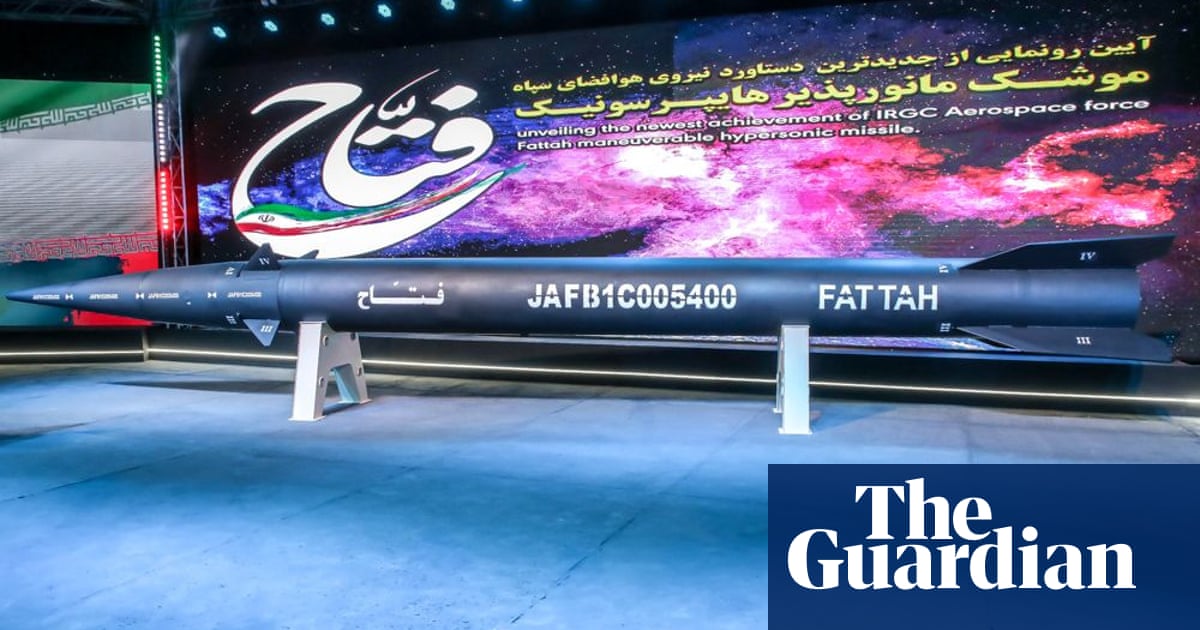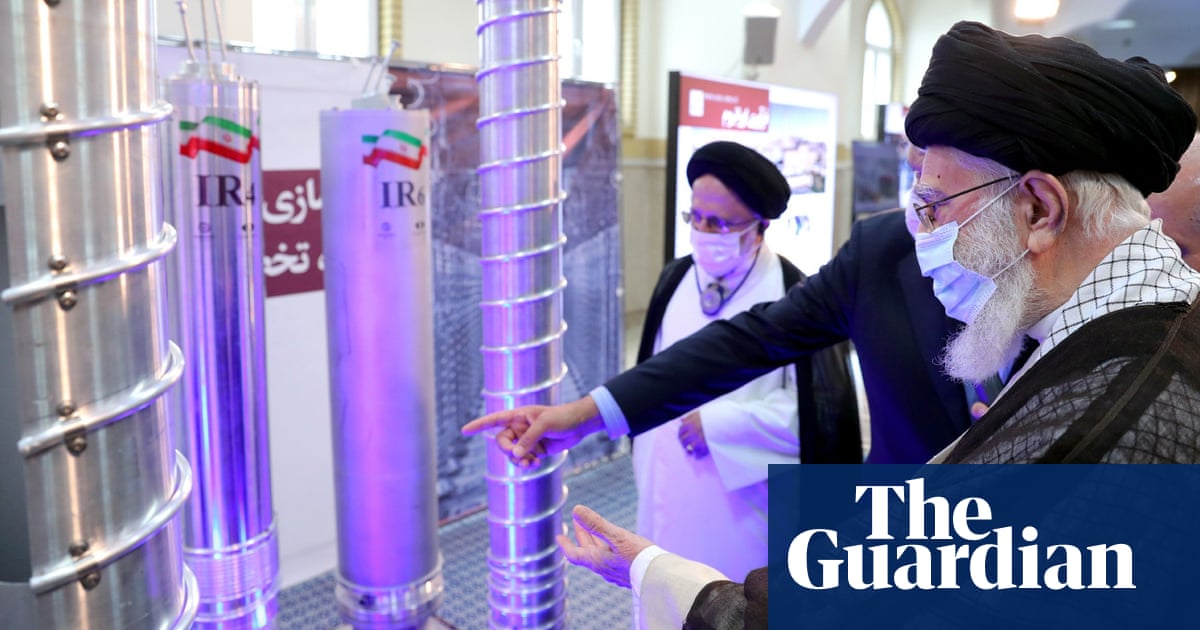
The UK, France and Germany should stick to the terms of the Iran nuclear deal and lift sanctions on Iranian missile development, Tehran’s chargé d’affaires to London has said.
Speaking on the eve of a UN security council debate on Iran, Mehdi Hosseini Matin said on Wednesday that such a breach would lead to the collapse of the deal, known as the joint comprehensive plan of action (JCPOA). It would, he added, also affect the atmosphere around recent bilateral talks in Oman between Iran and the US to secure a separate mini-agreement covering the release of US prisoners, maintaining aspects of the nuclear deal and the release of Iranian assets frozen abroad.
Matin said: “The UK and its European partners need to think strategically and it will be a big mistake not to lift sanctions. Europe should think twice. They will just have shot themselves in the foot. The structure of the JCPOA should be preserved, and if it is not they would be held accountable. We will not act now, but we will respond when we see what is announced.”
Iranian officials said one possible response would be higher levels of enrichment of uranium by Iran or the country’s withdrawal from the nuclear non-proliferation treaty (NPT).
In 2018, Donald Trump quit the nuclear deal negotiated by his predecessor Barack Obama, saying he was going to apply maximum economic sanctions in an attempt to force Iran to agree a new deal to constrain its nuclear programme and its behaviour in its region.
Trump’s successor, Joe Biden, sought to negotiate the terms for the US to rejoin the deal, but the talks in Vienna stalled amid disagreements over the UN inspection regime and Iran’s explanations for its past activities at specific nuclear sites.
The UK, France and Germany remained signatories to the deal, which has so far prevented Iran producing weapons-grade uranium.
Matin was responding to reports that the UK and other two European powers were planning to maintain sanctions related to Iranian missile production after 18 October, the date they are due to be lifted under the terms of the 2015 deal. The European powers have said repeatedly Iran is breaching the clauses on missile production in the deal.
But Matin said the 2015 deal only “called upon Iran not to undertake any activity related to ballistic missiles designed to be capable of delivering nuclear missiles, including launches using such technology”. He said the wording did not represent an obligation on Iran.
Matin, who is the most senior Iranian diplomat in London, said Iran was not producing such weapons and added that any sale of drones by his country to Russia was not covered by the nuclear deal since these unmanned aerial vehicles (UAVs) were neither a weapon nor a missile. Ukraine had not fully taken up the opportunity offered to put its case that Iranian missiles were being used by Russia, he said.
The 2015 nuclear deal’s three European signatories have insisted in more than a dozen letters to the UN secretary general since 2018 that Iran has breached different aspects of the ballistic missile clauses of the agreement, sending a destabilising message to the region.
The UK ambassador to the UN, Dame Barbara Woodward, said this week: “Iran is in flagrant breach of UN resolution 2231 [which enshrines the nuclear deal] not least in the way it is selling UAVs to Russia for the war in Ukraine.”
She added: “We think Iran has three times the amount of highly enriched uranium needed to manufacture a nuclear device, so the stockpiles are high and Iran’s ability to enrich uranium is high, so that is a situation that is causing us a lot of concern, so that is why we are working so hard to agree what to do next about that.”
The lifting of the complex web of sanctions linked to Iran’s ballistic missile programme would affect a number of Iranian defence firms close to the Tehran regime.
In the UK, the chair of Labour Friends of Israel, Steve McCabe, has written to the foreign secretary, James Cleverly, to say it would be outrageous if sanctions were lifted, given Iran’s egregious and consistent breaches of the nuclear accord.
Matin insisted Iran’s increase in the amount of enriched uranium beyond the limits set in the JCPOA did not in itself constitute a breach of the deal since article 37 of the accord stated: “If sanctions are reinstated in full or part, Iran will treat that as grounds to cease performing its commitments under the deal.”
All the steps Iran had taken after the US pulled out of the deal in 2018 were reversible, he added.
Speaking to France 24, the head of the UN nuclear inspectorate in charge of verifying the nuclear deal admitted the accord was in very bad shape. Rafael Grossi said: “It is an empty shell, basically. No one has declared it dead, but there is no diplomatic activity around it.
“If there is any alternative agreement I hope we will be invited to be the ones to inspect and verify that whatever commitments are made are for real and not just a piece of paper.”











